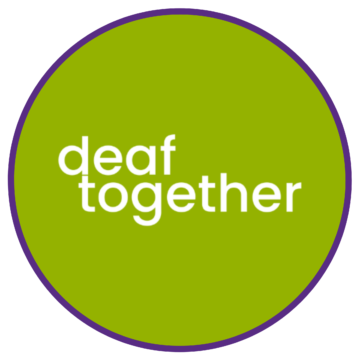Review of the NHS Accessible Information Standard
Case studies
Two of the videos below are a BSL translation of a patient’s experience and two are shared by the Deaf patient themselves.
Full Report
Summary
In late 2021, a coalition of charities surveyed NHS and social care professionals in England, as well as disabled people who have accessible information and communication needs, about the NHS Accessible Information Standard (AIS). More than 900 people gave responses.
- After five years of the Accessible Information Standard, only 11 per cent of patients covered by the AIS have equitable access to the NHS.
- 35 per cent of professionals reported that their organisation provides regular training linked to the AIS. 37 per cent report training has never occurred.
- 67 per cent of Deaf people reported that no accessible method of contacting their GP has been made available to them.
- 81 per cent of patients reported having an appointment when their communication needs were unmet.
- 77 per cent of people with accessible information needs reported rarely or never receiving information in alternative formats.
- Only 41 per cent of complaints procedures were reported to be accessible by the professionals who filled in the survey.
- 1 in 3 health and social care providers were unaware or unsure of the existence of the AIS.
The AIS sets out clear steps that providers are required to take to meet information and communication needs, but our evidence suggests that this is not happening. The results highlighted significant actions that must be taken by providers to implement the AIS in full.
Responses indicated a lack of training, and a poor understanding of communication access as a patient right and of providers’ responsibility to follow the AIS.
Poor implementation has serious practical, health and emotional consequences. Patients shared experiences of a lack of accessible communications as a barrier to:
- making appointments
- communicating with health professionals
- finding out test results
- receiving accessible information on discharge or medication instructions.
These are areas where people with communication needs receive a lower quality of healthcare, including situations which could put patients at serious risk.
This important survey amplifies the voice of patients, sharing their lived experience of accessing health and social care and uncovering issues from the perspective of both providers and patients.
Urgent priorities
These priorities address the gaps in implementation and add the accountability necessary to embed and strengthen the AIS. As a coalition of user-led organisations and disability charities, we are ready to support implementation and improve access.
Full implementation
Implementation of every aspect of the AIS is a requirement, but these areas have been identified as urgent priorities.
- Training: staff must be informed of the AIS, its importance and how to meet it.
- Patient record systems: a flag must be available and used to alert staff through a prominent notification on patient records. It should also transfer to referrals or handover documentation. The flag should notify staff, when an appointment is made or the record updated, what actions to take to meet the patient’s needs. The system should be capable of actioning alternative formats, for example sending an email or a large print letter.
- Alternative contact methods: Providers must not rely solely on phone systems for contact. Alternatives must be in place to meet patients’ needs.
Accountability and Monitoring
- Contracts: Information accessibility must be written into provider contracts and monitored as part of minimum commissioning standards. This means:
- Embedding access costs in tenders and contracts.
- Accessibility is included as part of inspections, along with enforcement timelines and annual reporting.
- Dedicated Lead: An AIS lead in each service who is responsible for implementation and review.
- Development: Providers should also review their existing services alongside people with lived experience.
- Accessible complaints procedures: Including more accessible methods of promotion and availability in a range of alternative formats.
Recommendations
- Email and Text Suggestion: The majority of patients responding to this survey indicated that email and text message would be preferred methods of contact with their GP surgery. Providing and promoting these options could be a simple and cost-effective measure.
- Data oversight: Allow patients to access their own records and make amendments to their accessible communication needs, in person or via NHS Health Access/Online portal.
- Video Relay Service: British Sign Language (BSL) interpreters should be made available remotely via VRS and VRI, on-demand, 24/7 to provide communication support at short notice or in cases where agency provisions fail.
Share the report
#AccessToHealth #HealthInequity
Thank you
Thank you to everyone who participated in our survey about access to NHS services last autumn. This report was written by you. Your stories demand change. We will not accept this inequality.
Also a big thank you to our partners.

Press release and comment
For media enquiries or comment please contact Laura Woodbury, Communications Manager, lwoodbury@signhealth.org.uk

How healthy are Deaf people?
Sick Of It is SignHealth’s ground-breaking report uncovering the health disparity Deaf people face in the UK. Published in 2014, the report has influenced policy and changed practices in the NHS to improve communication and reduce barriers.
Report: Sick Of It




